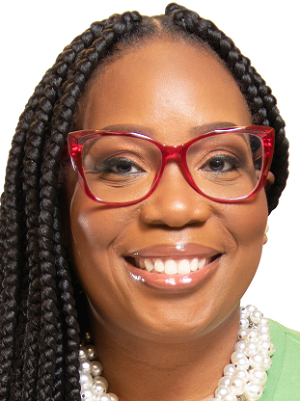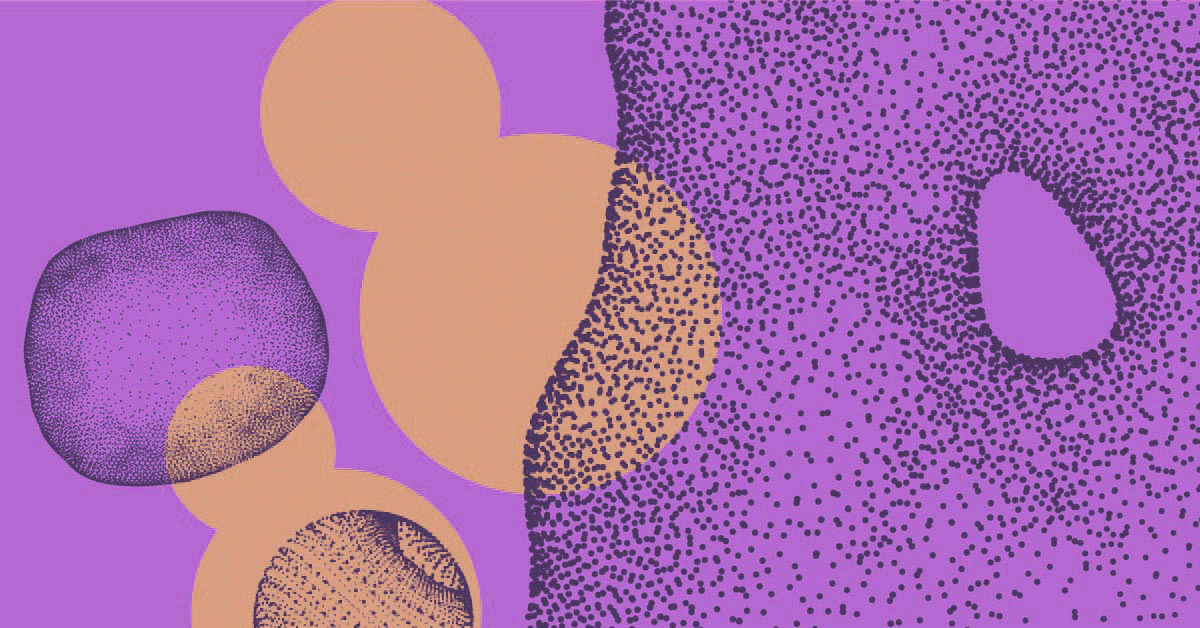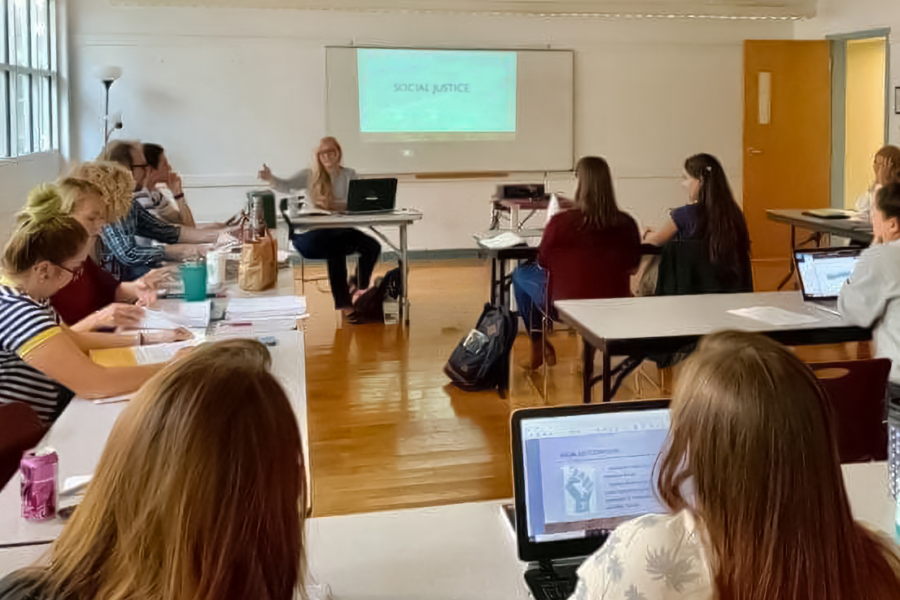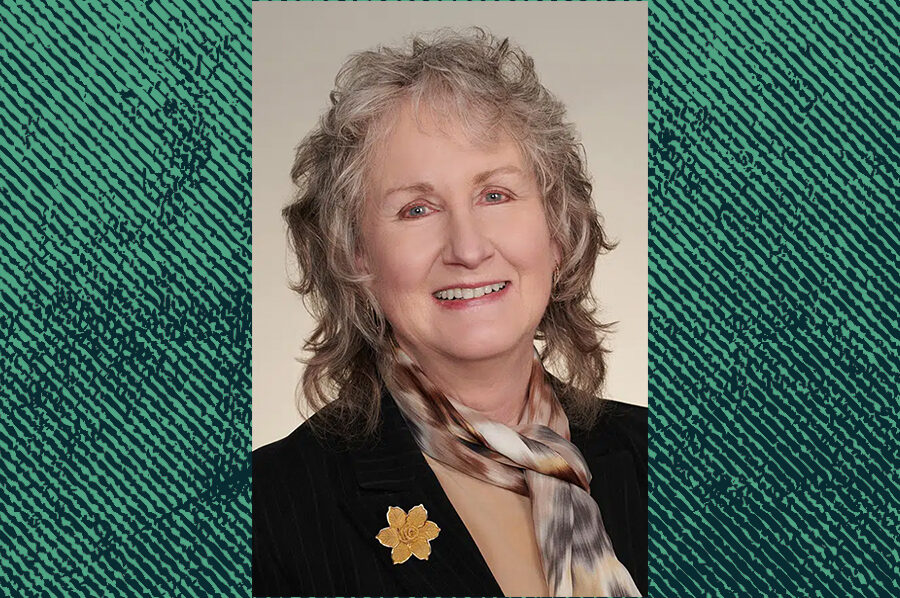In 2018, Chanté Meadows stood on a TEDx stage and addressed a problem that’s central to her career: why isn’t mental health treated as being equally important as physical health? In this instance, she was speaking specifically about how this pattern affects the Black community that she’s part of. Meadows outlined stigmas she often heard associated with mental healthcare. Friends and neighbors would say, “I’m going to just go to Jesus and pray about it.” Others would say, “I’m not weak. I’m not crazy.” Meadows, who went on to graduate from Antioch University’s PhD in Leadership and Change in 2023, explained how these attitudes cause people to suffer in silence—and not to get the help they need.

Standing on stage that day Meadows couldn’t have known that two years later a novel virus would isolate individuals across demographics in collective fear. She couldn’t have known that in the midst of this anxiety, the police murder of George Floyd would cause people across the world to reconnect in the streets to condemn the extrajudicial killing of Black people and spark a global outcry. She couldn’t have known that a national mental health crisis was going to take root in the wake of these events.
But as she addressed that audience she did know that mental health matters—and that she was called to help people understand its impact. And Meadows has done this work during a time of changing attitudes. Today, she says, thinking about these impacts is much more of a social norm. “I think it’s the first time in everyone’s life that mental health is not allowed to be ignored,” she says, “because there are so many things that are exacerbating our mental health as a culture.”
She also knows that no one came through the past few years without trauma. “We’re just now at a place where we can slow down to think about how it did affect us and we’re realizing, ‘Oh, I’m not okay,’” she says.
This is true for the people who help others work through their challenges, too. Therapists, counselors, and mental health practitioners are not isolated from what’s happening in the world. This led Meadows to another important question – how do Black mental health practitioners navigate the complexity of shared racial and social trauma both personally and professionally?
The answers of how shared trauma impacts providing mental healthcare could help support many people working in the field. “I talk about it for the Black community, but it’s truly everyone because we’re in a day and age where we don’t know when the next mass shooting is going to hit,” Meadows explains. “We all have this sense of this shared trauma. All of us. No one is exempt from it.”
And it’s not just gun violence – the climate crisis, political polarization, fascism, economic precarity – these are all anxieties that can weigh on both clinicians and their clients. Meadows’ work recognizes the connection that those shared experiences can offer as a foundation for understanding and healing, a model currently lacking in the counseling field.
Meadows Changes Her Studies to Meet the Moment
The focus of her dissertation, Black Mental Health Clinicians’ Experiences and Lessons from the Intersecting Crises of Black Mental Health, COVID-19, and Racial Trauma: An Interpretive Phenomenological Study, is a personal one.
Meadows runs her own clinic with ten practitioners, is president of the State of Ohio’s National Association of Social Work, teaches at Ohio State University, and continues to see a handful of clients. “I can never get so big that I never have some individual clients,” she says. “And that’s because then you lose the pulse of the people you originally started this for.”
It wasn’t the focus she began her PhD in the Graduate School of Leadership and Change with, though. In the midst of her first dissertation, pregnant with twins, studying how community stakeholders like Black churches were spaces for organizing political change, Meadows opened her Facebook page and everything changed. On April 20, 2021, she watched real-time footage of a young Black girl, Ma’Khia Bryant being fatally shot by a police officer in Ohio. It was her “enough is enough” moment.
“That might have been one of the first days I cried in front of my students because I was still trying to process personally as a wife, as a mother,” she says. But at the same time she was expected to be a social worker, a professor, a board member. “I had to still function in my life, professionally, while also having all these personal reactions. And it was just like, I don’t have this to keep giving the world,” she says.
She needed answers for how Black mental health professionals could show up for their people and for themselves because that’s what she found herself having to do.
The Experience of Black Mental Health Counselors is Specific
Through interviews with Black mental health providers, Meadows began to see patterns of overlapping experience. Systemic racism, social disparities, and health inequities became highly publicized. The rate of COVID-19 was three times higher in Black counties in the United States than for predominantly white counties, and the death rate was six times higher. Anxiety grew. Black people continued, and continue, to be disproportionately targeted and killed by police. Anger, frustration, and depression compounded.
So did the need for culturally competent mental healthcare that could address these intersecting traumas. Participants in Meadows’ dissertation stated that the percentage of Black clients they were seeing jumped from 50 or 60 percent to almost 80 to 90 percent. The people she interviewed were living these traumatic experiences alongside the majority of their clients. “Yes, we’re clinical people,” Meadows explains, “but you also need to realize there’s nothing about our life that made us exempt from anything.”
Clinicians found many ways to support themselves while they were working, practices that Meadows categorizes as “self-care.” These are things that will be familiar to most, like exercising, getting outside, turning off the news, starting artistic practices, becoming active in social justice spaces, and seeking out their own therapists. Connecting with community was also important.
But many responses spoke to larger changes that need to happen in clinical training. Although programs will offer some level of diversity training or cultural competency, the experience of being Black is specific and people she interviewed spoke to the necessity for classes about the impacts of racial trauma. “There are no classes that are really like, let’s talk about race in a very direct and empowering way,” she says. “Well, we have to understand that it’s there. How do you talk about it? How does it show up in a clinical setting?”
We All Have Trauma: Clinical Models Should Recognize Practitioners’ Humanity
Centering the experience of the clinician goes against most of the training Meadows has received. “The traditional role of psychotherapy made the clinician feel like it was so much about the client that you had to decrease yourself in a way that does not feel authentic to you,” she explains. Shrinking to fit this model erased the shared experience of Black clinicians working with Black clients, which could potentially work as a foundational connection point for healing.
Meadows relates this to her experience as a Black woman who is better able to bring discussions about mental health to other Black people than someone outside of their shared experiences could. Her shared perspective and her professional training work together, they’re not separate.
“It is easier, a little bit, as a Black woman to be able to have these harder conversations. I can exist in multiple worlds,” she explains. She’s able to be both Dr. Chanté Meadows and Chanté who brings all of her personal experience navigating the world. “I am the person who can say it because I have had to navigate all the isms – poverty, sexism, racism,” she says. “And it gets easier when you can say, I’ve been there, and I’m still in it.”
Meadows’ dissertation shows these connections matter to people seeking care and could better inform clinical training programs broadly, as every person brings both their expertise and their personal experiences of trauma. What’s missing in western therapeutic models is the framework to recognize these knowledges as equally valid and important. “Traditional psychotherapy leaves very little room for cultural humanity,” says Meadows succinctly.
As we share more collective trauma as a society, Meadows’ work necessitates a reimagining of how clinicians can bring their whole selves to their work. Her dissertation offers a guide for practitioners to support their client’s mental health, without sacrificing their own.



